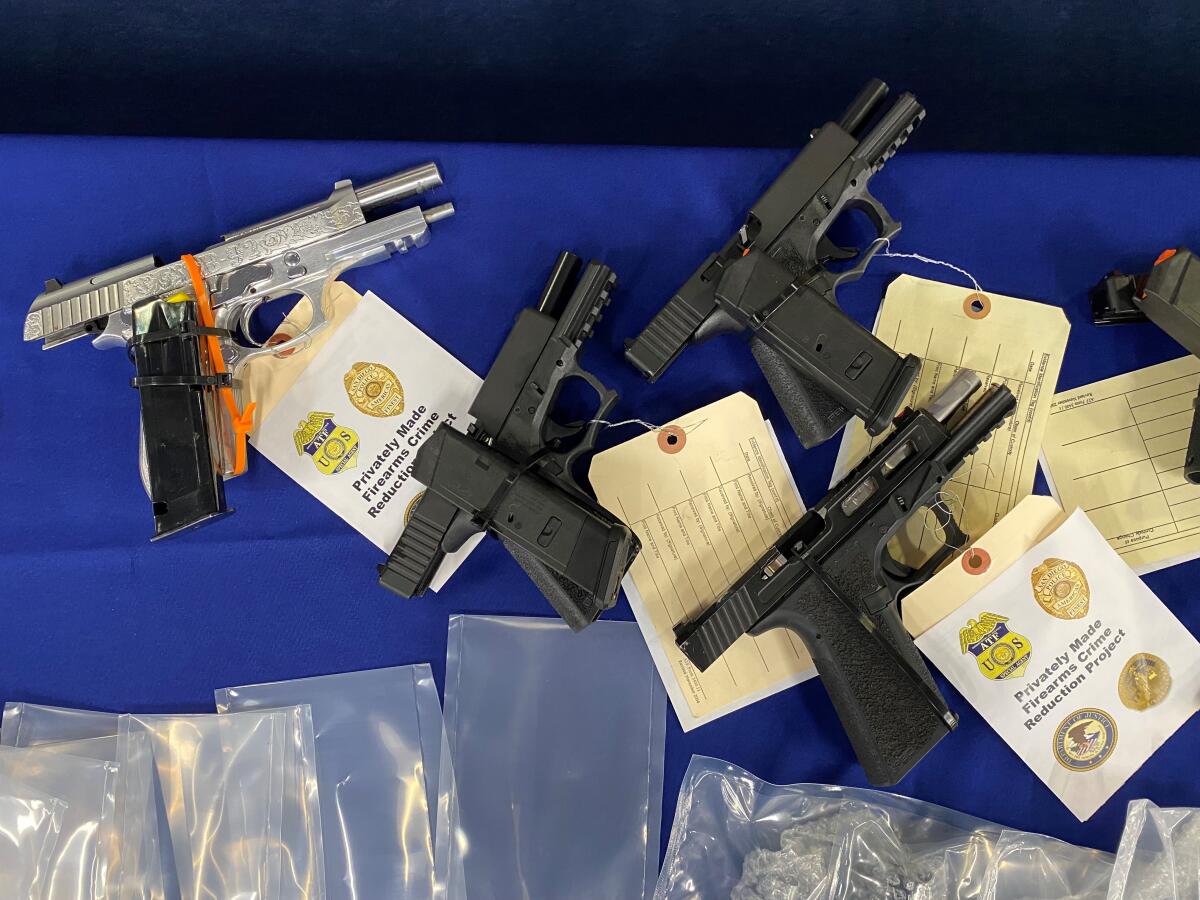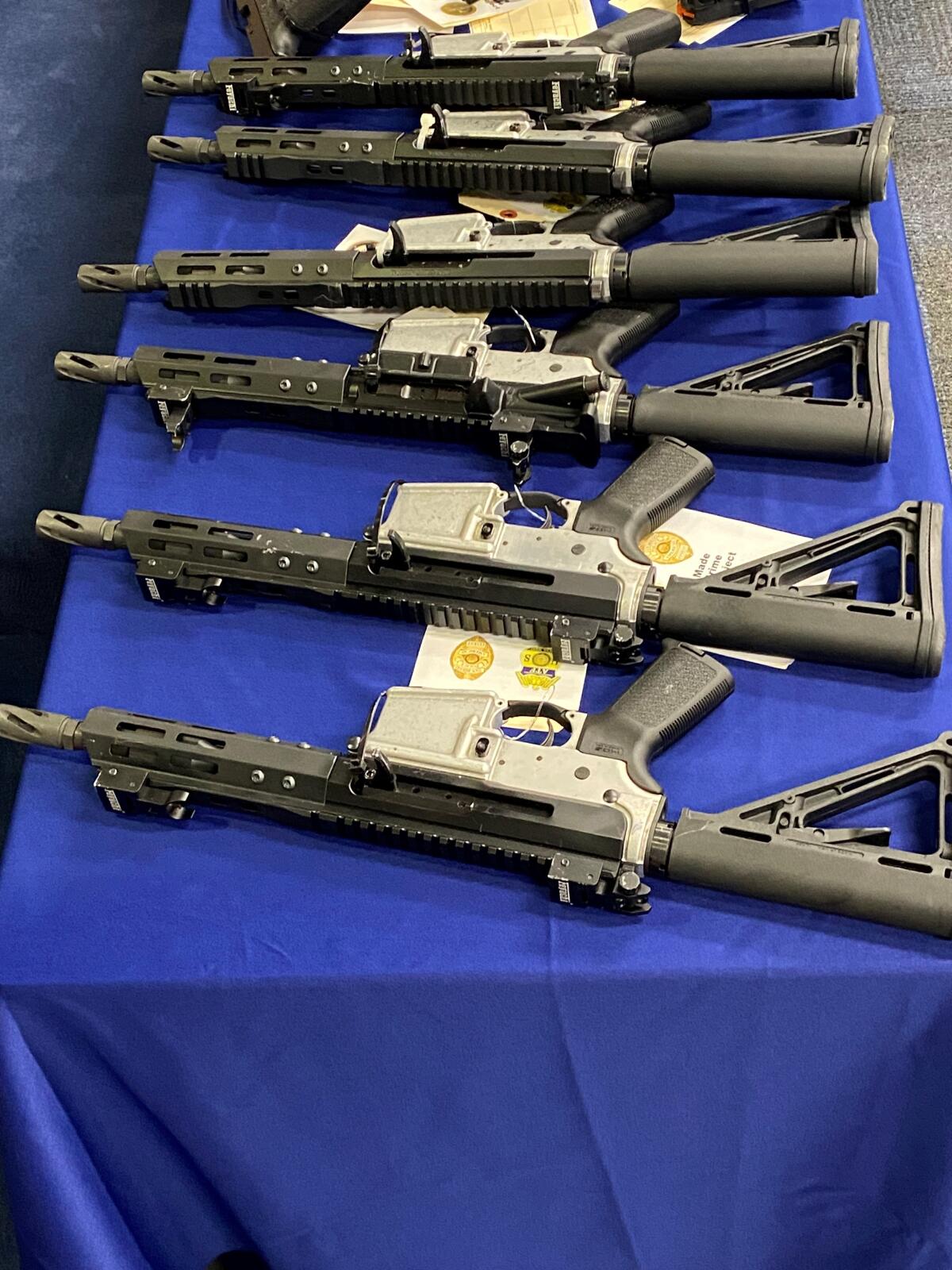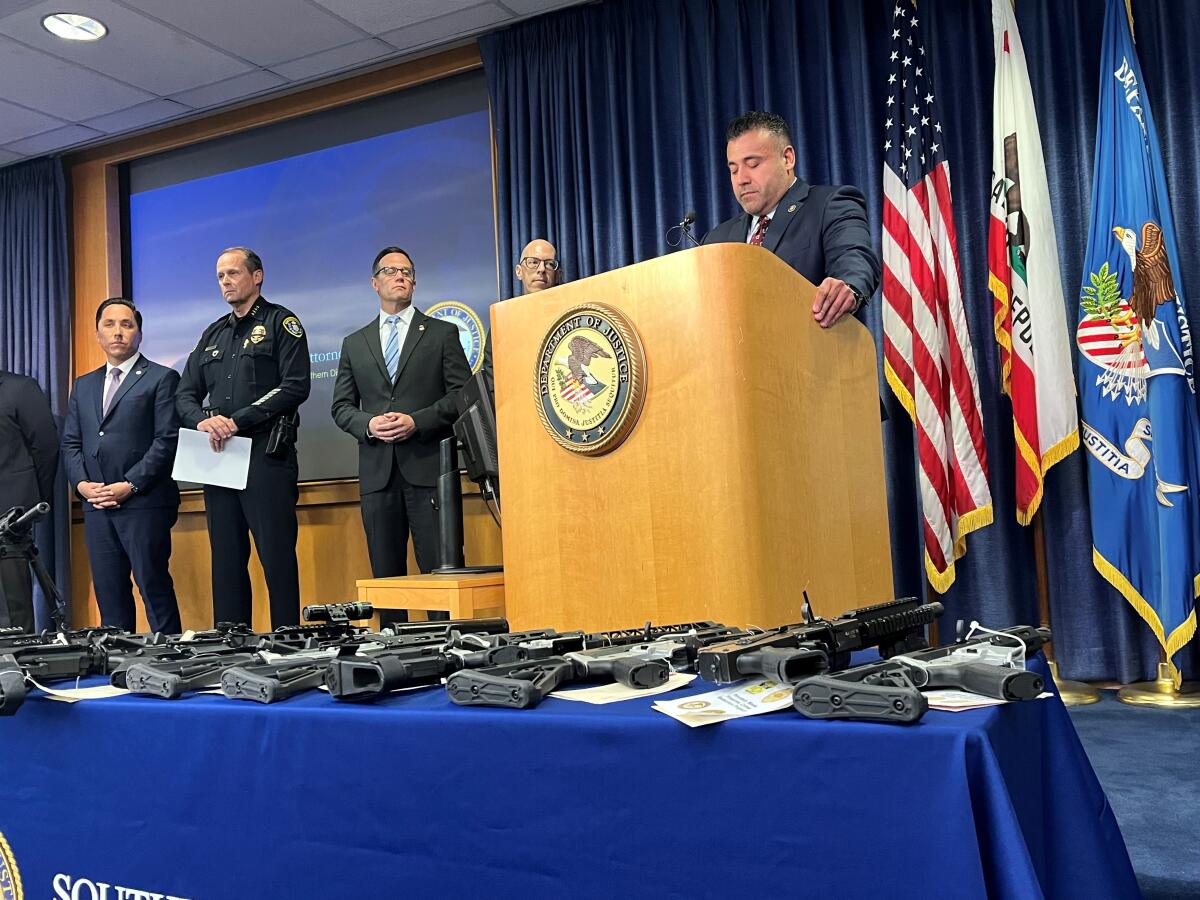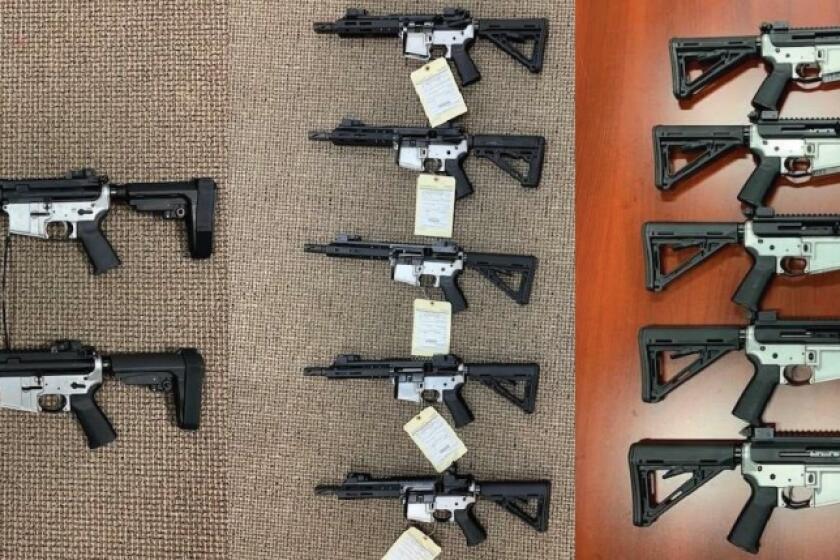ATF seizes 165 firearms, including 82 ghost guns, during San Diego operation

Authorities targeted ‘historical hot spots in San Diego for ghost gun seizures,’ as well as seized guns found at crime scenes and used in crimes or possessed illegally.
- Share via
SAN DIEGO — A three-month operation led by federal law enforcement agents and the San Diego Police Department resulted in the seizure of 165 firearms, including 82 “ghost guns” that have no serial number and are suspected of being privately made, authorities announced this week.
The campaign — which lasted from Feb. 1 to May 1 and was led by the Bureau of Alcohol, Tobacco, Firearms and Explosives — has resulted in the prosecution of at least 29 people, some suspected of unlawfully manufacturing, selling or possessing firearms, and others suspected of committing related drug offenses, officials said Wednesday at a morning news conference.
About two-thirds of those defendants are being prosecuted in U.S. District Court, mostly on firearms charges, while the others were charged with drug offenses in San Diego County Superior Court, authorities said.
“Guns, drugs and violence go hand in hand,” U.S. Attorney Randy Grossman told reporters. About half of the seized weapons and related items were displayed on tables nearby, including short-barreled rifles, silencers and handguns modified with “Glock switches” to make them fully automatic.

Grossman said the firearms seized during the operation “were illegally possessed, used in an alleged crime or found at a crime scene.”
Ghost guns, which are often built from prepackaged parts bought online, are a concern for law enforcement because they are difficult to track due to their lack of a serial number. According to the U.S. Attorney’s Office, about one-quarter of the guns that San Diego police recovered at crime scenes in 2021 were ghost guns. San Diego County law enforcement agencies saw a 401% increase in ghost-gun recoveries between 2019 and 2021, the office added.
For now, such weapons remain illegal, though 2nd Amendment groups have launched legal challenges in San Diego and Nevada against laws that ban self-built firearms and their precursor parts.
An undercover ATF agent purchased 12 AR-15-style ghost rifles from Christian Ferrari, including 10 short-barreled rifles, according to a criminal complaint
Among the weapons on display Wednesday were those that an undercover ATF agent allegedly purchased from Marine Lance Cpl. Christian Ferrari. The Camp Pendleton-based Marine was charged three weeks ago in San Diego federal court with three counts of dealing firearms without a license, for allegedly selling 12 AR-15-style ghost guns, and two counts of possession of unregistered firearms in connection with allegedly selling 10 short-barreled rifles.
Grossman also highlighted the case of another defendant charged with assaulting a federal officer and other gun-related offenses. According to court records in his case, the man allegedly robbed an undercover agent at gunpoint in the parking lot of the Serra Mesa Walmart on Murphy Canyon Road.
Prosecutors allege the man agreed to sell a handgun that had been illegally modified to become fully automatic to an undercover agent. But when the two had almost completed the sale in the back seat of a car, the man allegedly prepared the pistol to fire and pushed it against the agent’s rib cage. “Get the [expletive] out of the car, dog, before I smoke you,” the man allegedly threatened the agent before stealing the money.
Jose Medina, one of the assistant special agents in charge of the ATF’s Los Angeles field office, which covers San Diego, said most sales of illegal firearms happen via online advertising, typically over social media.

Medina said agents used those postings, plus intelligence gathered from San Diego police crime reports and other sources, to guide their investigations and identify what Grossman had described as “historical hot spots in San Diego for ghost gun seizures.”
Medina said the agency then “inserted ATF agents, coupled with San Diego police detectives, into those areas, and saturated those areas, to really target these individuals.”
More to Read
Sign up for Essential California
The most important California stories and recommendations in your inbox every morning.
You may occasionally receive promotional content from the Los Angeles Times.












